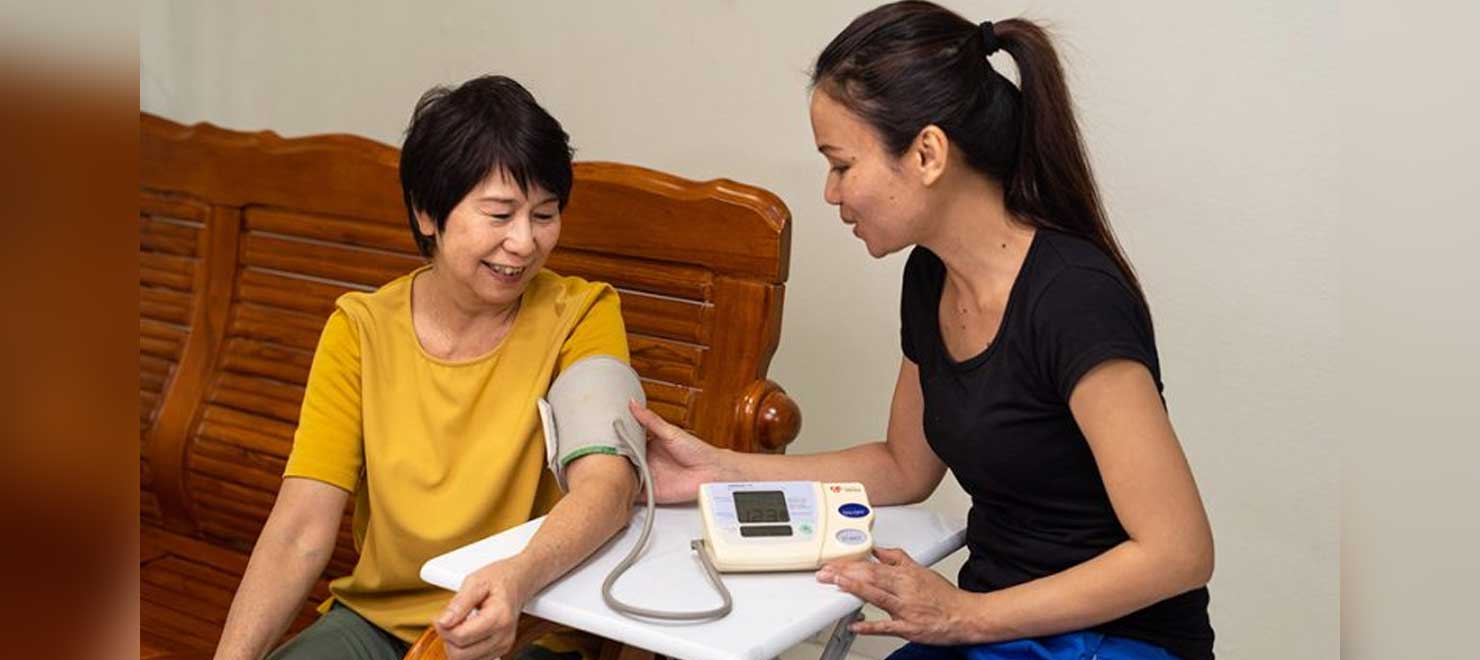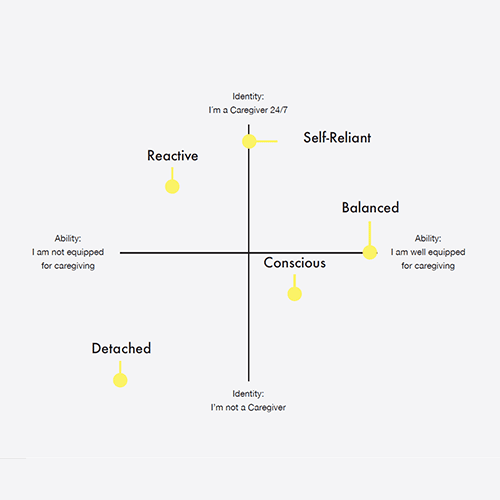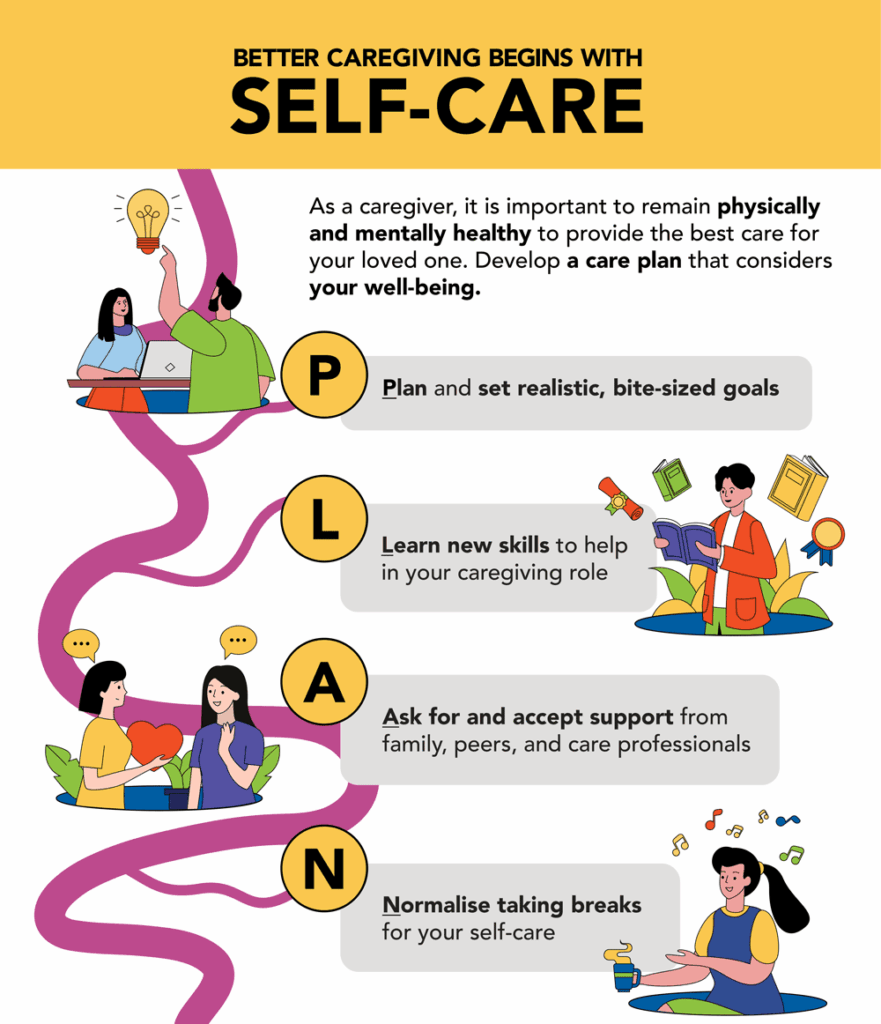
Caring for your loved one is important, but it is equally as important to look after yourself. Self-care means taking responsibility to care for yourself through the decisions you make. This includes anything you do to keep yourself healthy and happy, be it physically, mentally or spiritually. At times, you may also need to work with health and social care professionals.
Start with a PLAN
While most caregivers recognise the importance of self-care, it is often the first thing to be neglected when you find yourself in challenging situations. You can start your self-care routine with a PLAN:
Self-care starts with self-awareness
Have you ever had this question: “What kind of caregiver am I?”
By understanding the kind of caregiver you are, you can better understand how you view caregiving and self-care. This also gives you some insights on what are the things you would need to look out for. Below are 5 different kinds of caregivers whom you may identify yourself with.

Source: NCSS We Care Toolkit, 2016 (page 8)
| Caregiver type | Attitude | Characteristics & caregiving style |
|
The Reactive Caregiver
|
Feeling helpless | • Usually anxious and stressed • Often unexpectedly placed in the caregiver role • Unable to take care of their own needs as they put loved ones’ needs above their own • Gets less and less resilient with each crisis • Does not positively embrace the role and identity as a caregiver • Plans for the future in a way that only addresses immediate needs or problems as they come • Lacks effective strategies and skills to be a better caregiver • At high risk of burning out, or becoming a care recipient• Usually anxious and stressed • Often unexpectedly placed in the caregiver role • Unable to take care of their own needs as they put loved ones’ needs above their own • Gets less and less resilient with each crisis • Does not positively embrace the role and identity as a caregiver • Plans for the future in a way that only addresses immediate needs or problems as they come • Lacks effective strategies and skills to be a better caregiver • At high risk of burning out, or becoming a care recipient |
|
The Balanced Caregiver
|
Seeing the good in everything | • Balances their identity, both as a person and a caregiver • Attends to each set of needs and roles seamlessly • Accepts caregiving, and embraces all experiences as a catalyst for personal growth • Balances current needs with planning for what might come in the future • Takes time to take care of themself by developing a trustworthy support network • Activates this caregiving network to provide continuous and holistic care for their loved one • Puts in place strategies to minimise uncertainty which helps to uplift caregiving experiences |
|
The Self-Reliant Caregiver
|
Tolerating and comfortable | • Succumbs to society’s idealisation of being self-reliant • Micro-manages their loved ones’ needs • Unable to seek more help to balance and attend to their own needs • Knowingly and willingly taken on the identity and role of caregiver so much so that the role has taken over their personal identity • Tends to neglect their own well-being • May face identity loss should they lose their caregiving role one day • Focuses on the present, failing to adopt more efficient and balanced ways of doing things in the future for their loved ones and own self • Has the motivation and skills to seek help, but struggles to identify the more suitable support for their needs • Perceives that everything is taken care of, and assumes no improvements are necessary • In reality, only immediate financial matters might be taken care of, while other aspects of caregiving are brushed aside |
|
The Conscious Caregiver
|
Aspiring to be better | • Caregiving was unexpected, but they adapt to take care of their loved one, even if their personal plans are disrupted • Aware that they need to take care of their own needs so that the caregiving role can be sustained • This adaptability allows them to shift between their caregiver and personal identity • Struggles with sharing caregiving within their families, and may have trouble navigating the social care system • Recognises that caregiving has positive and negative aspects • Confident that a positive attitude towards learning can lead to a better future for themselves and their loved ones • Conscious of the future and intends to plan but have not acted on it yet • Capable of seeking and receiving support |
|
The Detached Caregiver
|
Passive and detached |
• No attitude towards caregiving |
At AIC, we understand that caregiving can be a complex and challenging journey. It’s common to feel stuck in your current approach or to react to challenges as they arise. Recognising that you don’t have to navigate this path alone is an important step. By exploring new perspectives and strategies, you can take control of your caregiving experience. If you’re feeling anxious or overwhelmed, seeking support can help you build confidence and resilience. Together, we can work towards a more fulfilling experience for both you and your loved ones.
If you recognise yourself in one of the caregiving styles above, here are some questions you can ask yourself:
- Am I caring in a way I want to care? Or would I rather have a different caregiving style?
- What works well for me?
- What do I struggle with?
- How can I improve my caregiving style?






